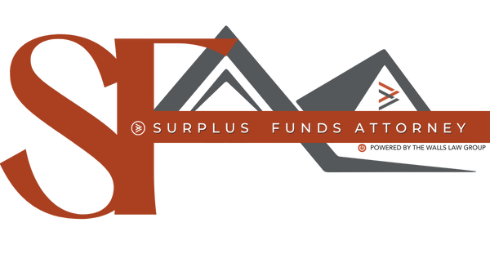Foreclosure Recovery: Protecting Your Rights and Recovering Your Money in North Carolina
Facing foreclosure is one of the most stressful experiences a homeowner can endure, but it doesn't have to mean losing everything you've invested in your property. North Carolina law provides several protections for homeowners, and understanding these rights can make a significant difference in your financial recovery.
Whether you're currently facing foreclosure or have already lost your home, there are legal strategies and recovery options that many homeowners don't know about. Here's what you need to understand about protecting your rights and maximizing your recovery during the foreclosure process.
What happens to the owner's equity in a foreclosure?
When your property goes through foreclosure, your equity doesn't simply disappear - it's converted into surplus funds if the foreclosure sale generates more money than needed to pay off the foreclosing lender. Understanding how this process works is crucial for protecting your financial interests.
Your equity represents the difference between your property's value and the amount you owe on mortgages and other liens. If your property sells at foreclosure for more than the total debt against it, North Carolina law requires that the excess proceeds be held for your benefit as surplus funds.
The foreclosure sale process determines how much of your equity can be recovered. Properties sold at foreclosure sometimes sell for less than market value, which can reduce the surplus funds available to you. However, in markets where property values have appreciated significantly, substantial surplus funds can be generated even from foreclosure sales.
It's important to understand that your equity isn't automatically lost just because you're behind on mortgage payments. Even if you can't save your home from foreclosure, you may still be entitled to recover a significant portion of your investment through surplus funds.
The timing of when you can access these funds depends on the foreclosure process and any competing claims against the property. While the foreclosure itself might happen quickly, recovering surplus funds is a separate legal process that requires active participation on your part.
How to claim surplus money from foreclosure
Claiming surplus money from foreclosure requires understanding both the legal requirements and practical steps involved in the recovery process. The key is acting promptly and providing proper documentation to support your claim.
Start by determining whether surplus funds were generated from your foreclosure sale. This information is typically available through the clerk of superior court in the county where your foreclosure took place. You'll need your case number and property information to locate the relevant records.
Gather all documentation that proves your ownership of the foreclosed property and your right to any surplus funds. This typically includes your deed, mortgage documents, proof of insurance payments, property tax records, and any other documentation that establishes your ownership interest.
File your claim according to the specific procedures required in your county. No counties have in North Carolina have standardized forms for surplus fund claims. The claim must include all required documentation.
Be prepared to address any competing claims or liens that might affect your right to the surplus funds. Other parties, such as junior lienholders or creditors, might also claim portions of the surplus money, and the court will need to determine the proper distribution.
Follow up on your claim appropriately and be prepared to provide additional documentation if requested. The process can take time, especially if there are complications or competing claims, but persistence and proper documentation are key to successful recovery.
What is a motion to disburse funds?
A motion to disburse funds is a formal legal request asking the court to release surplus funds to the appropriate parties after a foreclosure sale. This motion is typically necessary because surplus funds are held by the clerk of Superior court until the proper distribution can be determined.
The motion must identify all parties who might have claims to the surplus funds and provide the legal basis for the requested distribution. This includes demonstrating that you were the property owner, that you have priority over other claimants, and that all procedural requirements have been met.
Supporting documentation for a motion to disburse funds typically includes proof of ownership, evidence of the foreclosure sale, accounting of all debts paid from the sale proceeds, and verification that no other valid claims exist against the surplus funds.
The court reviews the motion and supporting documentation to ensure that the surplus funds are distributed according to North Carolina law. If there are no competing claims or complications, the court typically grants the motion and orders disbursement of the funds.
However, if other parties object to the motion or assert competing claims, the court may require additional hearings or documentation before ordering disbursement. This is why thorough preparation and proper legal representation can be crucial for successful fund recovery.
The motion to disburse funds is often the final step in surplus fund recovery, representing the legal mechanism through which you actually receive the money that belongs to you from your foreclosure sale.
This information is provided for educational purposes and shouldn't be considered legal advice for your specific situation. Foreclosure law and recovery strategies involve complex legal and financial considerations that vary by individual circumstances. If you're facing foreclosure or believe you may be entitled to surplus funds, consult with an attorney experienced in foreclosure and surplus fund recovery to discuss your specific situation.
